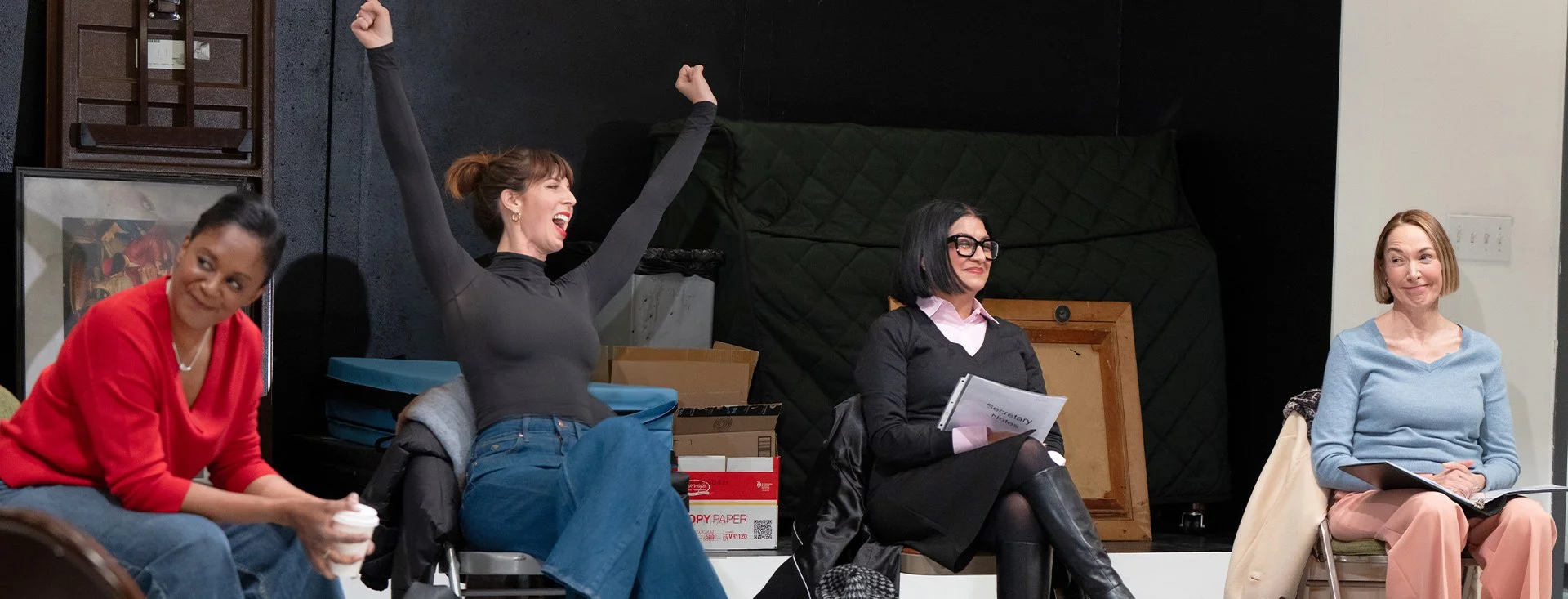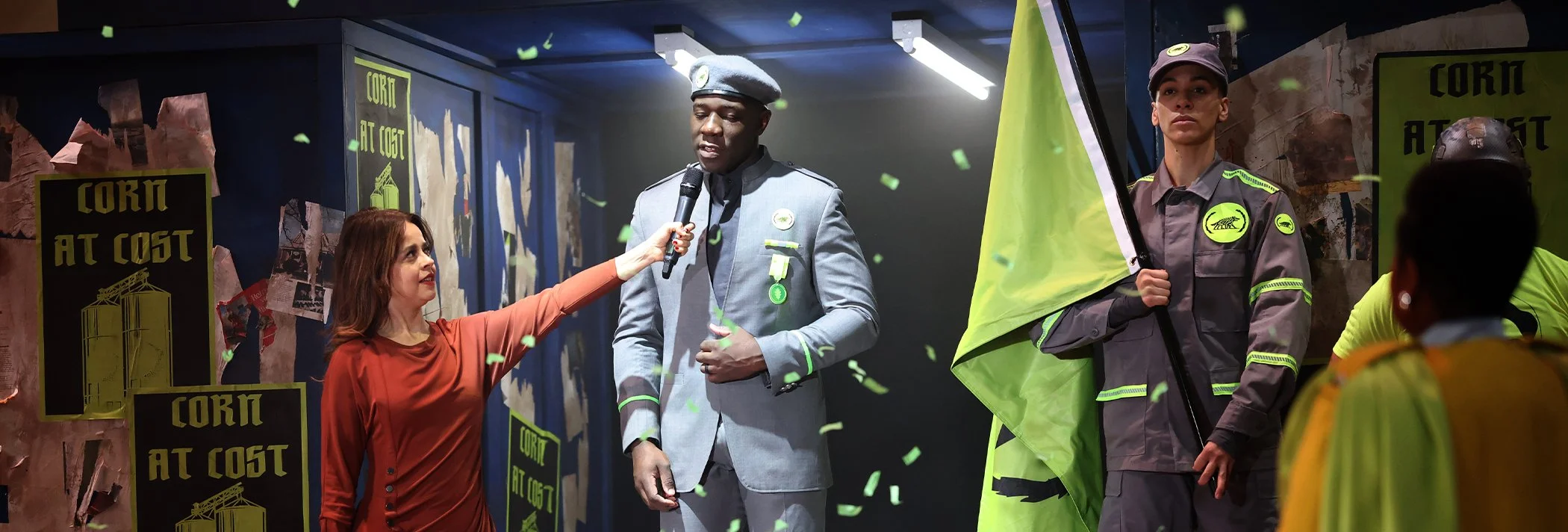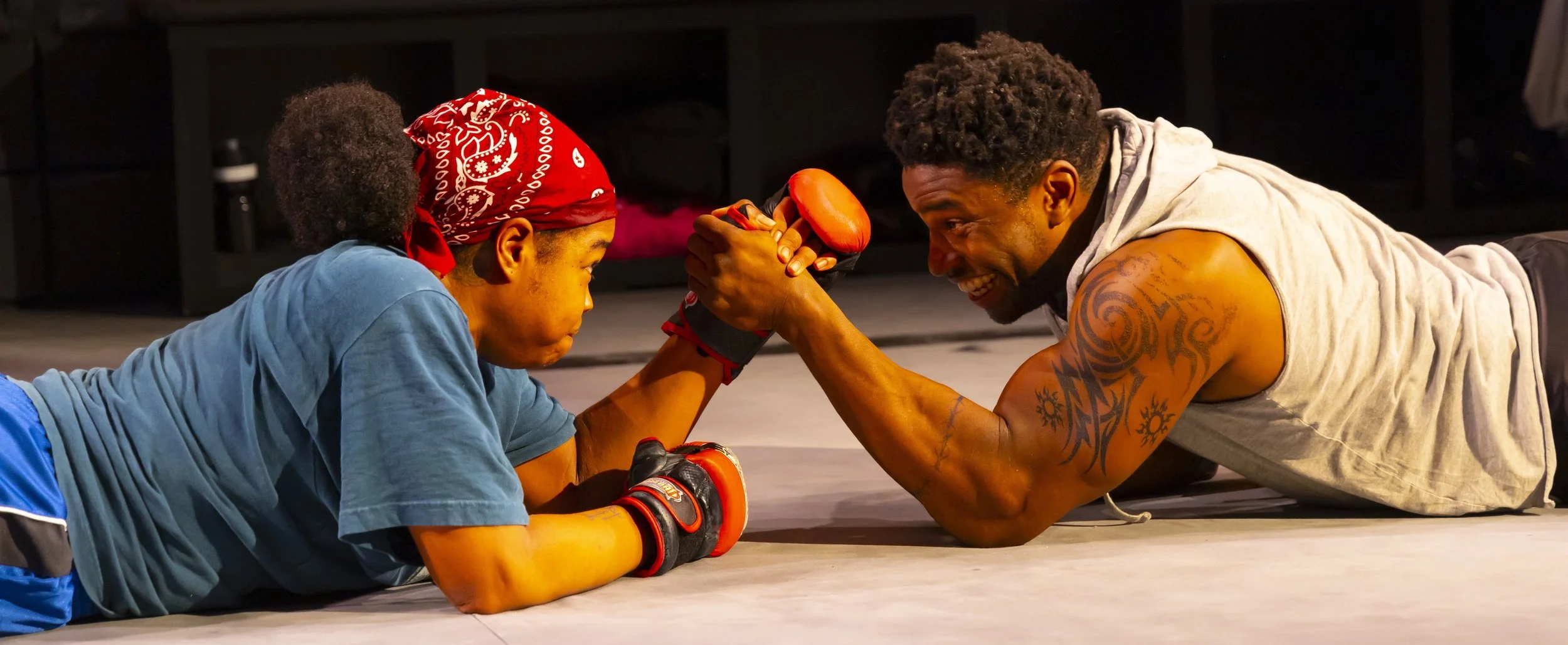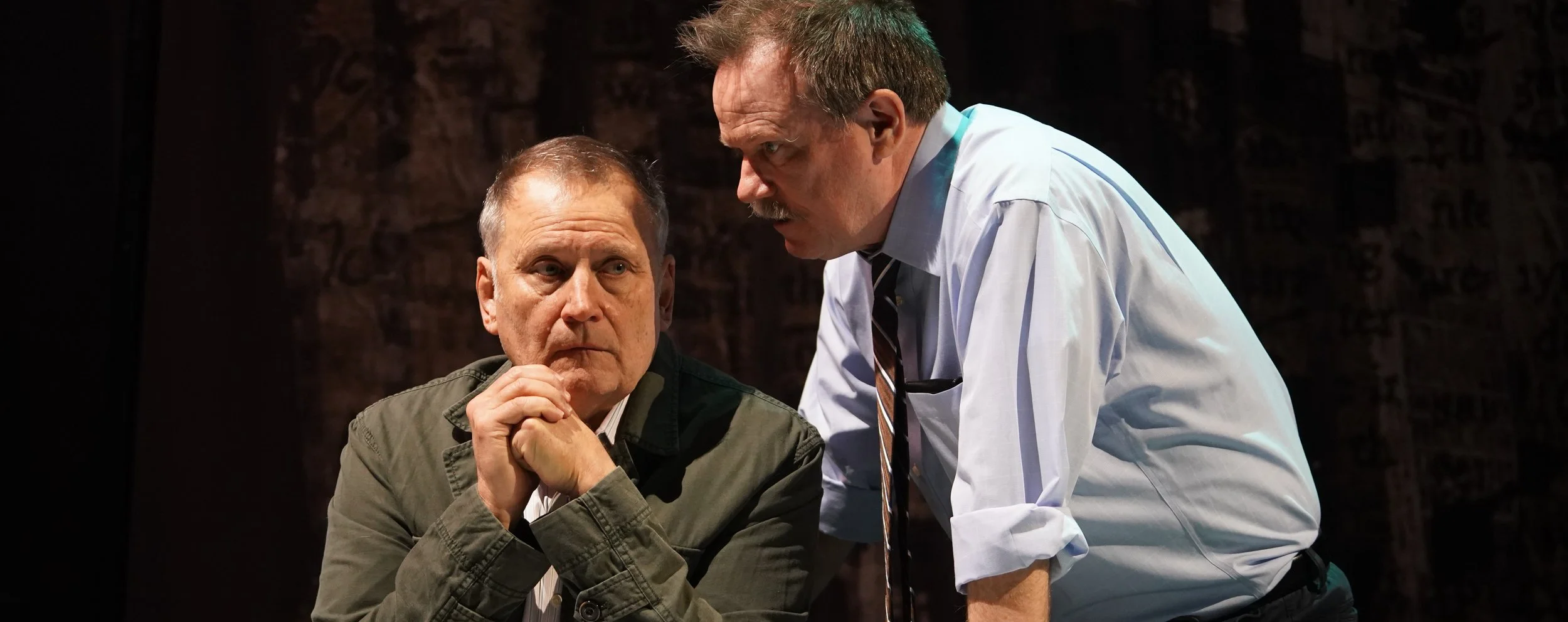Nostalgia is a potent drug. The lure of a “simpler time” can inspire longing, sadness and even a radical lifestyle change. Now onstage at the Flea Theater in a thoughtful, accessible production by New York Deaf Theatre, Jordan Harrison’s Maple & Vine looks past the chaotic world of 21st-century technology to offer a view of the politics and realities of returning to the past.
Syncing Ink
The Flea, an estimable downtown theater company with an irritating name, prides itself on having conjured “joyful hell in a small space” for the past 20 years. Now starting its third decade, the organization has moved to a handsomely renovated building it owns on nearby Thomas Street. The official inaugural presentation in its new home is Syncing Ink by NSangou Njikam.
Inanimate
Theatergoers who blenched at the subject matter of Edward Albee’s 2002 play The Goat; or, Who Is Silvia? will have a slightly easier time if they attend Inanimate, Nick Robideau’s play that opens the Flea’s new home on Thomas Street in Tribeca—but not by much. Robideau's subject matter parallels that of Albee, who wrote about a man in love with a goat. While Albee’s play is grounded in naturalism—the outlandishness of the premise contrasts with the upheaval of an otherwise normal family life—Robideau takes a different and less successful tack, embracing absurdism for a sexual disorder that is already at the fringes of credibility.
Winnie and Willie
The Theater of the Absurd is a daunting prospect to the entertainment-seeking theatergoer—it requires the unconscionable appeal of, say, Sirs Patrick Stewart and Ian McKellen, whose season of Absurdist Theater last year brought Samuel Beckett’s Waiting For Godot and Harold Pinter’s No Man’s Land to Broadway. As Beckett decimated man's relationship to God and Pinter eulogized the doomed existence of memories and mind, audiences who had seen the X-Men movies or Lord of the Rings happily received their dose of British strangeness through the familiar faces of their beloved English thespians. Accordingly, this year, the Flea Theater’s production of Beckett’s Happy Days stars husband-wife team Brooke Adams and Tony Shalhoub, and through their familiar faces, they feed us that unfamiliar brand of the absurd.
Happy Days is insistently strange, as is director Andrei Belgrader’s conception of it; the premise of Beckett’s absurdist play holds that Winnie (played by the sparkling Brooke Adams) is stuck waist-deep in the Earth, while her husband Willie (Ms. Adams’ real-life partner Tony Shalhoub) is free to wriggle and struggle in a hole behind her. Sorrowful antics ensue as Winnie eventually reconciles herself to her happy entrapment. Winnie’s seemingly mindless babble—which we come to realize is a kind of coping mechanism, as well as the hidden engine of the play—is what she herself calls a “great mercy,” adding that “what one can bring up, one brings up all.”
Ms. Adams electrifies Winnie’s disillusioned musings on life’s slow passage; the otherwise strange and somber dialogue is rendered alive and active, so much so that even during Winnie’s particularly existentialist speeches, we find commonality in her persistent contentedness. Her pearly, infectious smile and rich, languorous voice hook us to our seats, as does the expressive grayness of her wide, limpid eyes. Her face is a performer all by itself since we only see her from the waist-up, and we rarely, if at all, see Willie’s face; Ms. Adams’ changing features are the only actors on stage that anchor us to Beckett’s dialogue.
Winnie’s props are an umbrella and a black bag that she takes significant comfort in—they are seemingly ordinary personal effects, but they take on a surreal life of their own as she meticulously presents them to the audience and proceeds to use them. She brushes her teeth, wipes her glasses, and shapes her fingernails in front of us, taking great pains in the doing. It is here, in these diurnal little acts of the everyman, that the ordinary theatergoer finds Beckett’s modern-day relevancies. He creates metaphorical meaning in the bland rituals of the everyday, and gives unsuspecting life to our possessions, shaming us for our grasping materialism but also identifying with us. Today’s encroachment of technology into our quotidian conventionalities is much like Winnie’s overweening attention to her lipstick, her toothbrush, her umbrella, her gun, or Willie’s penchant for reading aloud from the newspaper, or looking at erotic postcards (one of the few activities given to Willie, which Mr. Shalhoub soaks with comedy.)
Director Andrei Belgrader makes the production hum with a social and emotional dystopia that portends the end of life in more ways than one. Beckett’s dry observations (“the Earth is tight today” and “there is so little atmosphere”) are bleakly elemental, and even environmentally aware (a reference apropos of modern troubles.) The sun-bright lighting that trains on Ms. Adams’ captured form like many blinding spotlights is “the great heat” that Winnie spiritually beckons with the words “Hail Holy Light!” The set is a positive marvel of minimalist design—the yellow-brown hill that Winnie crowns and crows over slips into a depression behind her, shielding Willie from the sight of his wife, but not the sound of her voice. A panorama of blue skies contributes to the ostensible optimism of the production, all courtesy of scenic designer Takeshi Kata.
Yet, even with the magnitude of her role (Peggy Ashcroft called Winnie “one of those parts that actresses will want to play in the way that actors aim at Hamlet—a ‘summit’ part”), Ms. Adams minimizes her presence cleverly at times, watching the audience perform their laughs and silences just as we watch her slip in and out of her happy tragedies. Mr. Shalhoub, earthy veteran of stage and screen, is a discreet comedic presence, but his wife is the very symbol of theatrical emasculation as Winnie, and we can only pity Willie and laugh at him for his dazed benightedness. The happy days that the two share are peppered with Beckett’s discomfiting (yet deeply personal) existentialism, but the powerful, character-driven performance of Ms. Adams makes this a must-see for any complacently content theatergoer.
The Theater of the Absurd ran until July 18 at The Flea Theater (41 White St. between Church and Broadway) in Manhattan. For more information, visit www.theflea.org.











